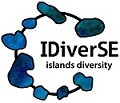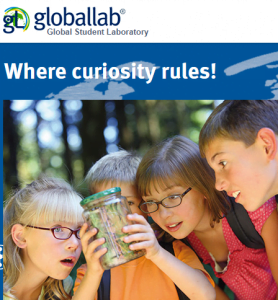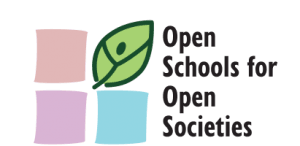IDiverSE assessment toolkit
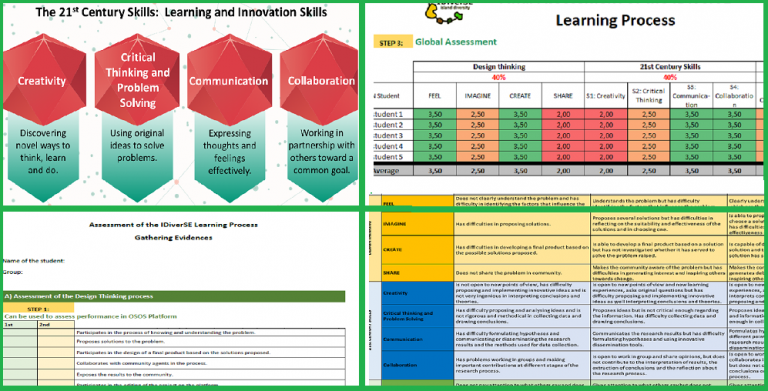
Innovative learning methodologies require innovative assessment methods. The IDiverSE assessment toolkit is a set of tools and tips that give you the chance of assessing your students' learning and development of key 21st century skills, while at the same time providing them constant feedback to raise their awareness and allow them to control their progress.
Visit the IDiverSE assessment toolkit
Personal Geography – Expressing learning experiences through art
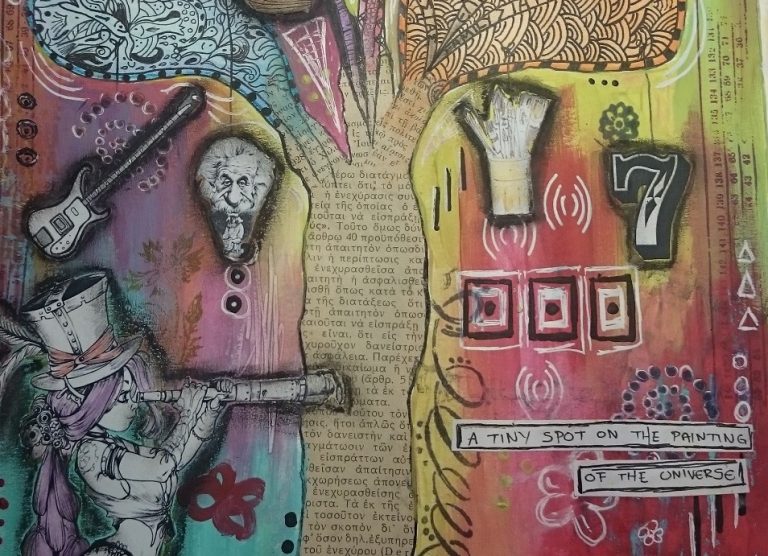
Personal Geography is an artistic expression of any given topic/moment/journey/situation/feeling, etc. In IDiverSE, Personal Geography represent the first moment of the students involvement. It will be their first representation of their place in their community and how they feel in it. As such, the project begins with them reflecting, mind-mapping and drawing a reflection of the following sentence: "me in my island, my island in me". This sentence can be adjusted to any situation like "me in my school, my school in me", "me in my community, my community in me", etc. Personal Geography is an innovative methodology that has not been fully explored in the world of education, and especially in the world of science education. By using it, we aim at allowing students to self-reflect and discover the impact of any given learning experience through an artistic expression. This can also be used as an assessment tool for teachers since students will regularly add components to their drawings throughout the project, related to what they learn and how they feel about the experience. To fully understand how to implement it, download the guide.
IDiverSE's Personal Geography guide (PT) | (ES)
Explore one Personal Geography example (PT) | (ES)
3D Interdisciplinary Map of Science Ideas
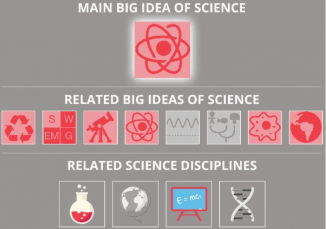
The 3D Interdisciplinary Map of Science Ideas is a very useful tool when it comes to creating an interdisciplinary team in the school. It was created from the revision of the curricula of six different European countries (Portugal, United Kingdom, Finland, Cyprus, Greece and Spain) and it brings an intuitive way of making connections between the topics from different disciplines. In short, it introduces the concept of Small Idea of Science (curricula topics), Big Ideas of Science (8 ideas that aggregate all the fundamental concepts of Science education) and the Intermediate Ideas of Science (created to establish the connection between the first two.
Learn more about this tool /Download the 3D Map user's Guide ( PT | ES | GR )/Download the printable version ( PT | ES | GR )
The Big Ideas of Science
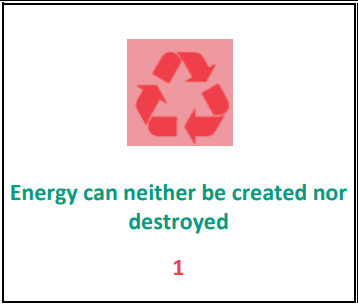
The Big Ideas of Science (BIS) are a set of cross-cutting concepts that to their total describe our world. They act as the knowledge structure which teachers and students can use as a reference point to establish underlying connections between facts and phenomena coming from different disciplines (whose connection may not be necessarily apparent to students at first), between each other and to everyday life.
The Big Ideas of Science set used in PLATON and referenced to in IDiverSE were originally designed by Ellinogermaniki Agogi and Núcleo Interactivo de Astronomia under the Go-Lab project and are currently also used in the Go-Lab platform.
Learn more about the Big Ideas of Science /Download the BIS here (with 3 levels of complexity) ( PT:1 | PT:2 | PT3 )
Inquiry Under the Microscope toolkit
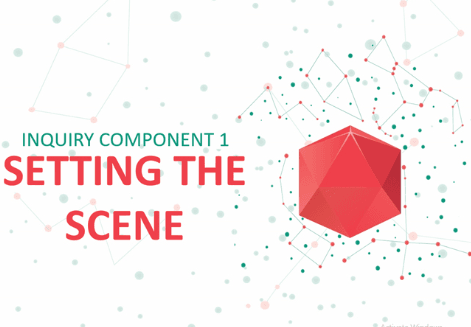
Teachers often claim that they want to implement Inquiry in their practice but don't really know how to begin or feel that it is just to difficult. The Inquiry Under the Microscope toolkit created in the framework of the project PLATON comes to solve this problem. It present Inquiry as a set of 9 components that can be integrated one by one in the teacher's practice, progressively and as a series of small steps. Teachers only need to focus on one part at a time and before they know it, they became experienced in Inquiry!
Learn more about this tool / Download the Inquiry Under the Microscope user's guide ( PT | ES | GR ) / Download the printable version ( PT | ES | GR )
Globallab is a collaborative data collection tool that allows students from all over the world to work on the same question, collect the same type of data and then analyse it. It promotes communication and collaboration between teachers, students and citizens in general who wish to participate on the existing projects.
All the IDiverSE activities include at least one globallab project.
Open Schooling is a model that provides school teachers and headmasters with a framework to develop and transform the school into an open school. By transforming into an open school, the school becomes a reference knowledge centre of the community, a science hub where citizens can seek for knowledge and the place where the students' work has an important impact for the surrounding community and with the involvement of the community. IDiverSE follows the Open Schooling Model principles and integrates the activities in the Open Schools for Open Societies Portal.
Learn more about the Open Schooling Model
